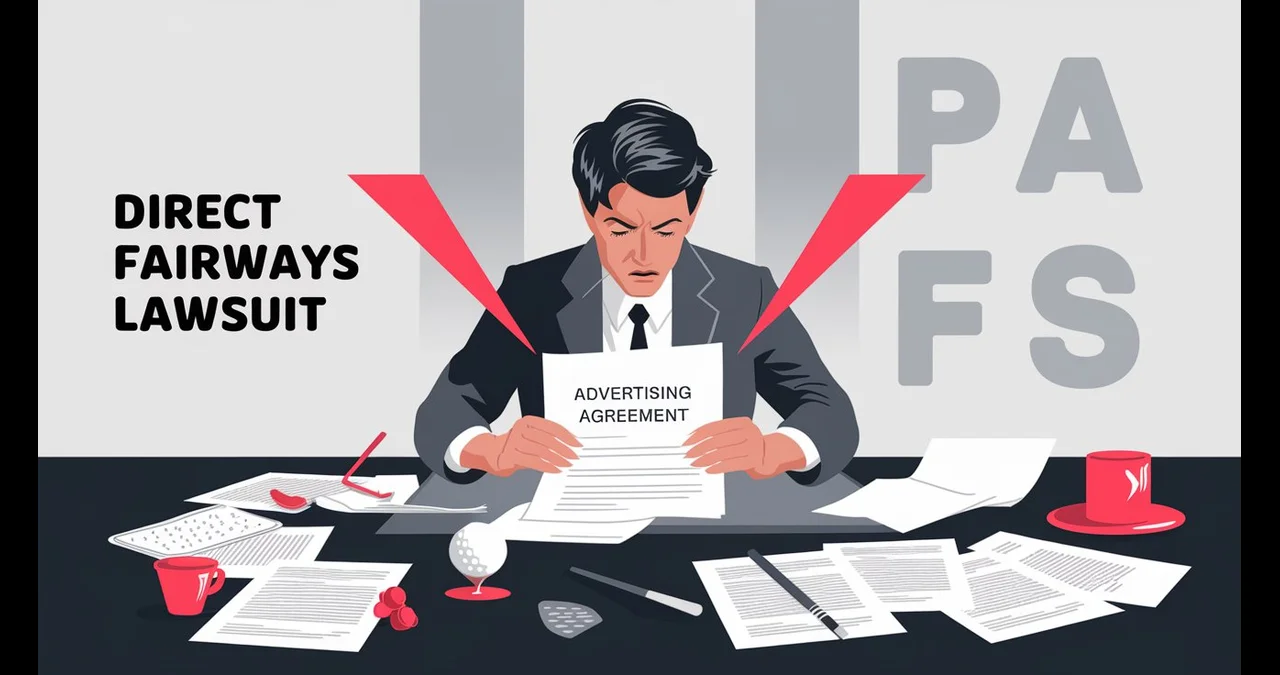Introduction to the Direct Fairways Lawsuit
What’s Going On?
The Direct Fairways lawsuit is a significant legal battle shaking the golfing world. It revolves around allegations that a company named Direct Fairways offered unfair membership deals to golf clubs, skewing competition and causing financial harm to competitors and partner clubs. The case has captured the attention of industry insiders, attorneys, and avid golfers, all eager to know what it means for the future of fair play in club management.
Why It Matters
This isn’t just another business dispute. It strikes at the heart of how clubs structure memberships, share revenue, and uphold competitive balance. Clubs nationwide watch closely: the outcome could reshape contracts, pricing, and partnerships for years to come.
The Players: Direct Fairways and Its Golf Club Partners
Who Is Direct Fairways?
Direct Fairways emerged as a booking and membership facilitator for golf courses, promising to streamline club operations while bringing in new members who pay less per round. It built partnerships with clubs ranging from boutique local courses to more established country clubs.
By designing dynamic pricing models, Direct Fairways claimed clubs could fill unused tee times and earn a steady stream of revenue—so long as they accepted DFW-branded discounted rounds. This arrangement initially seemed like a win-win: more rounds booked, and revenue shared between Direct Fairways and participating clubs.
Club Partners: A Mixed Bag
Clubs that signed up saw short-term gains in utilization and buzzy marketing—but some balked at the long-term implications. Many realized they were giving up control over pricing, getting fewer full-paying members, and potentially alienating existing members. That tension brought some clubs to challenge the arrangement. Others simply walked away, but not before alleging serious misrepresentation by Direct Fairways about the deal’s conditions.
The Core Allegations in the Direct Fairways Lawsuit
1. Deceptive Business Practices
Several plaintiffs argue that Direct Fairways overstated how much clubs would actually earn. Contracts supposedly guaranteed certain minimums or average utilization rates. But once tee times filled, payouts often fell short—sometimes by thousands of dollars each month.
2. Predatory Pricing Tactics
Allegedly, Direct Fairways demanded steep discounts on green fees, then flooded the market with cheaper tee times. Competitors sued, claiming this undercut local market pricing and siphoned players away from other nearby clubs. They say that constituted unfair competition.
3. Contractual Overreach
Some clubs contend that the terms of their agreements gave Direct Fairways undue power—such as unilaterally altering pricing or promotional terms without club consent, extending contracts automatically, or invoking ambiguous clauses that led to disputes over termination rights.
4. Harm to Club Reputation
Finally, clubs argue that by promoting heavily discounted tee times, their brand took on a “budget” image, pushing away mid-level or upscale members who refused to play alongside bargain hunters. Such reputational harm, they claim, was hard to reverse.
Timeline of Events
Earliest Alliances
The Direct Fairways business model took shape several years ago when clubs faced decreasing revenue due to economic slowdowns and demographic shifts. Many embraced DFW’s pitch in hopes of filling times before they’d otherwise go unused.
Growing Tensions
Within months, complaints started emerging. Clubs noticed payouts lagged behind the projections. The glossy marketing didn’t match the hard numbers. Some tried to renegotiate; others pulled out and were reprimanded with penalty fees.
Litigation Spurs
A formal lawsuit was filed over a year ago. Initially brought by a handful of disgruntled clubs, it quickly encouraged more plaintiffs to join. Today, the case involves a sizable group of clubs, several competitive concerns, and perhaps even municipalities that operate public courses.
Inside the Courtroom: Legal Arguments and Strategy
Plaintiffs’ Strategy
The clubs frame the case as a high-stakes fraud and anti-competitive fight. They point to contracts with projected utilization models and alleged misleading statements. They also cite local antitrust statutes. They want compensation for lost revenue and possibly punitive damages for repeated misrepresentation.
Direct Fairways’ Defense
DFW counters that contracts were meticulously drafted and clear. They say clubs had full access to all relevant data and could have declined the promo that didn’t meet their expectations. They also note that pricing decisions ultimately lay with the clubs and golfers—no one was forced to take the discounted rounds.
Discovery Drama
Expect fireworks. Both sides have subpoenaed internal emails, marketing campaigns, revenue projections, and meeting notes. Some documents reportedly contradict promotional claims or reveal financial analyses suggesting slim margins.
Expert Witnesses
Economists and golf industry analysts will likely Direct Fairways Lawsuit. Plaintiffs will try to show unfair market disruption; DFW will present counter‑studies highlighting consumer benefit and reserved rights in agreements.

Industry Fallout: What Clubs and Players Are Saying
Club Owners’ Perspectives
Many club owners who sided with the plaintiffs say the experience was eye‑opening. What looked like leverage turned into dependency. They describe DFW as moving the goalposts—shifting targets on pricing and contract terms once clubs were already onboard.
Some say the lawsuit is a cautionary tale. “Read every line,” one told me, “because what you sign could fundamentally change your club’s identity and earnings.”
Realtors, Developers, and Investors
Real estate professionals note that clubs with DFW-style agreements often showed inflated utilization numbers during due diligence—misleading investors about actual membership vigor.
Golfers’ Opinions
Recreational players benefit from lower rates—but many fall into unexpected restrictions such as blackout dates, limited availability, and reduced access to tournaments or social events. Member backlash in some locations was significant.
Potential Outcomes and Implications
Settlement?
There’s a possibility of a multistate settlement in exchange for contract amendments, better disclosures, and pooled damages. But plaintiffs might hold out to set a legal precedent.
Court Rulings
A verdict favoring clubs could result in big damages awards and force Direct Fairways to revise agreement structures, revenue models, pricing guidelines, termination rights, and promotional methods.
Industry-Wide Contract Shift
Even without a big ruling, the litigation has triggered leaders in golf associations to convene panels to draft standardized contracts—emphasizing transparency, shared revenue ceilings, and caps on discount depths. If adopted broadly, clubs may favor these templates over single‑vendor partnerships.
Regulatory Attention
There’s chatter about state regulators adopting disclosures for tee‑time aggregators—much like real estate or franchising rules—to prevent predatory use of signed agreements. That could accelerate a wider legislative shift unless Direct Fairways adjusts.
How to Safeguard Your Club from the Same Pitfalls
Read Every Clause
Don’t let promotional hype overshadow contract substance. Look carefully at revenue assumptions, termination rights, scope of pricing control, usage guarantees, blackout dates, and penalty triggers.
Negotiate Safeguards
Clubs should include accurate data sharing, monthly reconciliation rights, clear cease‑function ability with no penalty, usage caps, and the right to approve future marketing pitches linked to your brand.
Monitor Performance
Track green‑fee averages, per‑round payouts compared against projections, and impact on full‑fee member retention to catch red flags early.
Build Broader Partnerships
Consider working with multiple aggregators—or invest in proprietary online booking systems to reduce dependency.
Lessons for Golf Businesses and Beyond
The Direct Fairways lawsuit doesn’t just highlight a dispute about golf bookings. It underlines a larger lesson for all industries reliant on platform partnerships: move deliberately, understand the incentives at play, and negotiate terms that preserve independence.
The case foreshadows what’s coming in the service‑platform economy. As more industries adopt aggregator/distributor models for bookings, visibility, or service delivery, suppliers will need tight contract terms, rapid audit rights, the ability to pivot, and more equitable splits—especially when the supplier controls key relationships or pricing.
Closing Thoughts: The Fairways Ahead
At its heart, the Direct Fairways lawsuit is a clash between innovation and control. On one side, you have new ways to market unused slots, boost income, and attract younger players. On the other hand, entrenched clubs and competitors warn about volatile pricing, brand dilution, contract overreach, and distorted competition.
As an expert observer, I see this case as a critical inflection point. Its outcome will ripple beyond golf—impacting any business where one party sells another’s inventory at scale. It offers a reminder: innovation is welcome, but contracts must be built on balance, transparency, and respect for all stakeholders.
Golf clubs, aggregators, investors, regulators, and even players will watch closely. And after the gavel falls, the industry may chart a new path toward fairness in offering tee times and managing partnerships.




